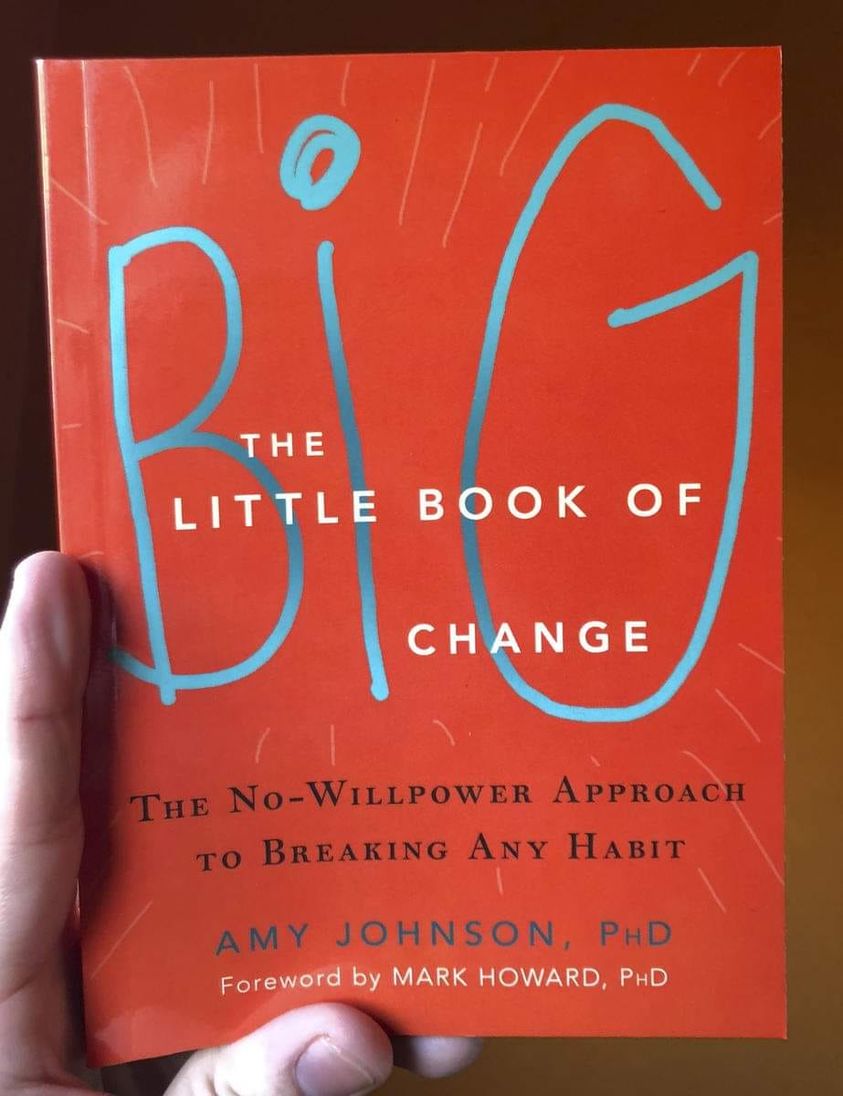In our lives, habits often dictate our actions, shaping the course of our days and influencing our overall well-being. Breaking free from detrimental habits and establishing healthier ones is a universal desire.
Amy Johnson’s insightful book, “The Little Book of Big Change,” offers valuable lessons that can guide us toward lasting transformation. Let’s delve into these ten lessons and discover the power of change.
- Understanding the Nature of Habits: Johnson emphasizes that bad habits are not a reflection of personal weakness. Rather, they are deeply rooted in our brain’s wiring. This understanding allows us to approach change with self-compassion and without self-judgment.
- Embracing the Possibility of Change: We all possess the capacity to change our habits. Although it requires time, effort, and commitment, it is within our reach. Cultivating a growth mindset and believing in our ability to transform is essential on this journey.
- Uncovering the Science of Habits: To facilitate meaningful change, it is crucial to delve into the science behind our habits. By grasping the workings of our brains, we gain insight into why we engage in certain behaviors. This knowledge becomes the foundation for effective habit transformation.
- Identifying Triggers: Triggers are the catalysts that prompt us to engage in our undesirable habits. By identifying these triggers, whether they are external cues or internal emotions, we gain awareness of the specific circumstances that lead to our unwanted actions.
- Avoiding Triggers: Once we recognize our triggers, we can proactively work to avoid them. Minimizing exposure to these cues reduces the likelihood of falling back into old habits. Creating an environment that supports positive change becomes crucial.
- Developing Healthy Coping Mechanisms: To replace detrimental habits, we must develop healthier coping mechanisms. This might involve finding alternative activities that bring joy and fulfillment or adopting stress management techniques. Seeking positive and constructive ways to deal with challenges empowers us to break free from the grip of harmful habits.
- Embracing Patience and Persistence: Changing habits is a process that requires patience and persistence. Transformation does not occur overnight, and setbacks are a natural part of the journey. By remaining steadfast and committed, we can weather the challenges and keep moving forward.
- Building a Support System: Surrounding ourselves with a supportive network of friends, family, or like-minded individuals is invaluable during the habit change process. Sharing our aspirations and progress with others fosters accountability, encouragement, and a sense of community.
- Celebrating Successes: Recognizing and celebrating our achievements, no matter how small, is vital for maintaining motivation and momentum. Each step forward, no matter how incremental, contributes to the larger goal. By acknowledging and rejoicing in our successes, we reinforce our determination to continue the transformative path.
- Seeking Guidance and Support: Asking for help is a sign of strength, not weakness. If the challenges become overwhelming or we feel stuck, seeking guidance from professionals, such as therapists or counselors, can provide valuable insights, tools, and perspectives.
These ten lessons from “The Little Book of Big Change” illuminate the transformative power within us. By understanding the nature of habits, embracing change, and enlisting support, we can embark on a journey of personal growth and lasting positive transformation. Remember, the path to change may be challenging, but the rewards are immeasurable.














